Since we published our Digital in 2018 reports back in January, I've been travelling around the world presenting our key findings, trends, and highlights with the teams at We Are Social and Hootsuite.
As part of that series of live events and webinars, we've had some great conversations with marketers at brands of all shapes and sizes about where digital marketing is headed over the coming months.
Many of their questions will be relevant to brands like yours too though, so we've decided to address the most important questions and challenges in this post.
Context
If you've not already explored the 5,000 charts in our Digital in 2018 reports, get started with the Global Overview report below, and then use the clickable links on Slide 5 to find the specific data for the countries that matter most to you.
Numbers are just the beginning, though; what does all of the data in this year's reports tell us about the future of marketing?
Our predictions: 'Future Forces 2018'
Our 'roadshow' presentations have explored 5 essential themes that we believe marketers should address as priorities in 2018:
- The increased need for paid media, especially in social media;
- The rise in the cost of paid social media placements;
- The need to rethink 'pull' (inbound) marketing, especially in terms of content;
- How to find ideas for content that audiences will actively want to engage with; and
- How to work with influencers, and ensure that influencer marketing activities deliver real ROI.
If you'd like to explore those topics in more detail, check out this replay of our APAC webinar, where we dig deeper into topics 1, 3 and 5 above, or this replay of the Facebook livestream of our event in London.
You can also read through the presentation slides in the SlideShare (note that you'll get richer context in the links above, though).
Every time we've presented this content, it's provoked a variety of great questions from the audience.
However, there are a few questions that come up again and again.
Below, you'll find my answers to some of the most common questions we've heard from audiences so far.
What marketers want to know
1: Is digital still growing everywhere? The simple answer to this question is 'yes' – almost every country in the world has seen meaningful growth in digital usage over recent months – but that growth isn't evenly distributed.
Africa has witnessed the fastest growth in internet adoption in recent months, with user numbers up more than 20% in the past 12 months.
However, more 'mature' digital markets are still experience promising growth too: social media users grew by 7% in the USA in 2017, and 5% in the UK.
Meanwhile, APAC is already home to more than 2 billion social media users, but that figure includes an impressive 228 million new users who cam online in 2017 alone, representing year-on-year growth of 14%.
People are spending more time online too, and they're doing a wider variety of things with connected technologies as well:
Based on all the numbers I've been seeing in the 7 years I've been producing these reports, I think we'll see sustained growth across all things digital well into the foreseeable future.
2: Which matters more – reach or engagement? We've had this question at almost every event in the past couple of months, and I confess that it worries me. If marketers aren't sure what value their social media activities are delivering, there's a good chance that they're wasting their time, money, and effort. The simple answer to this question is: What matters most to your brand?
You're going to need to balance both reach and engagement of course, but you should define what success looks like for your brand's specific needs and context well before you start planning your social media content and activities (let alone measuring your performance).
Top tip: it's a lot easier to succeed if you know what success looks like.
3: Will social media marketing suffer as a result of things like the Cambridge Analytica affair? This is a hugely important topic, but much of the media coverage has focused on the more salacious stories, rather than a balanced reporting of the facts.
First, let's start with some data.
Based on what I've been seeing in my ongoing studies of Facebook use around the world, it doesn't look like many people (if any) are actually going to #DeleteFacebook.
Indeed, Facebook's latest monthly active user (MAU) numbers actually show increases in all of the platform's top markets:
It's not just Facebook's data that suggests recent privacy concerns haven't had much impact on Facebook's user numbers, either.
The latest insights from App Annie show that there was a brief dip in Facebook app downloads and app usage in both the USA and the UK in recent weeks, but that this activity has already returned to previous levels.
Here's the Google Play ranking chart for the Facebook app in the USA between Feb 26 and Mar 27:
And here's the same chart for the UK over the same time period:
As you can see, there were some steep drops in both countries around the middle of March, but there were similarly quick returns after just a few days.
If you'd like to dig into these insights in more detail, you might want to check out this article that I wrote for The Next Web.
In essence though, despite the battering that Facebook's share price has taken in recent days, the key take-away for marketers is that people do not seem to be abandoning Facebook in any significant numbers.
However, they're definitely more wary of the data they share, as well as what they post.
My assessment is that people will think more carefully about using things like Facebook login to access non-Facebook sites, or using the Facebook Like and Share buttons on third-party websites or games.
This wariness may have an impact on marketers' success though, so what can we do?
My advice is to treat your audiences as you'd hope to be treated yourself (i.e. as an individual, not as a marketer).
If you do want to collect data about your audiences, be very clear and transparent about what data you're collecting at the moment you collect it. Tell people why you're collecting it, and how you'll use that data to add value back to them, too.
Furthermore – and contrary to most of the current advice out there – I'd suggest rethinking your 'big data' policies as well.
Do you really need to collect all that data? What will you use it for?
As policies like GDPR become more pervasive around the world, collecting and using people's data will become increasingly risky for businesses, so marketers will need to be very clear what value that data adds to the bottom line if they're to justify the associated costs and risks.
In particular, too many marketers have been using the data they've been collecting simply to interrupt people in more 'personalised' ways.
Whilst that might seem like a great idea in the boardroom, the reality is that most people get very spooked when someone they don't know seems to know lots about them – especially if that 'someone' is a brand that they don't really know or care about.
That's not a great way to build a lasting relationship.
So, if you have any doubts about whether people might be unnerved by your data collection activities or data-driven marketing, the best thing to do would be to change those activities, instead of trying to justify them after the fact using elaborate 'privacy' policies and explainers.
4: How can I keep track of changes to platform algorithms? The media – especially the marketing media – love to talk about social media algorithm changes as though they're the end of the world as we know it.
However, in reality, no marketer out there (or journalist, for that matter) actually knows how these algorithms work anyway – whether before or after any changes.
More importantly, social media platforms like Facebook, Twitter, WeChat and even Vero are all businesses.
They need to make money just like you do, and they've got their targets to hit as well.
Marketers who expect something for nothing from social media platforms are deluding themselves; you can be confident that most algorithm changes are designed to help the platform make more money and hit its targets.
So, rather than lying in bed worrying about the things that you can't control (like Facebook's next round of algorithm changes), focus your thinking on how you might build a more sustainable mix of paid, owned, earned, and shared media and content.
More importantly, focus on building content that your audiences will actively seek out, wherever you choose to share it (if you're wondering how to do that, check out topic #3 in this webinar or this event livestream).
5: Why do people's behaviours and platform preferences keep changing? People (note: audiences, consumers, users, etc. – they're all just people) will always follow value – or at least their own perceptions of value.
If people believe that they can achieve the things that they care about better, more easily, more cheaply, or more enjoyably elsewhere, they'll vote with their feet (or rather, with their fingers).
Marketers often get distracted by the technological aspects of digital platforms ("look at these direct-response carousel ads!"), but people don't use social media or mobile apps to see marketing; they're looking for meaning and value of their own.
So, when you're building your content plans, or even exploring a new platform, look for ways to add new kinds of audience value in more meaningful ways, and not just new ways to interrupt people.
6: What would you recommend for B2B brands / non-profits / SMEs / (etc.)? This question comes up at every event, and my advice is always the same: no matter what industry you're in, or where you are in the world, social media marketing is always about people (the clue's in the name).
Success in social media depends on understanding your specific audience, and in particular, identifying and delivering the value that those people seek, on their terms.
What that looks like will be different for almost every brand – even direct competitors.
However, the approach is the same for every brand in the world: start by asking: Why would my audience care?
This usually means telling people how your brand / product / organisation makes their lifebetter, and not just how amazing your product or service is.
7: What's the next big platform? This is a question that seems to come up at every event too, and I offer the same answer each time: until you've made the most of the amazing platforms that you already know about, try not to get too distracted by 'shiny new toys'.
Most marketers have barely scratched the surface when it comes to Facebook marketing, and given that the platform now has well over 2 billion users around the world (up 15% year-on-year), you're more likely to see better returns on your investments if you focus your efforts there, rather than jumping onto every new platform.
There are opportunities for brands to do interesting things in new platforms of course, but most of these activities are 'PR plays' designed to get into the marketing press, rather than meaningful efforts to engage everyday audiences.
It's also worth noting that most brands can only really manage one – perhaps two – social platforms well before they overstretch their resources and dilute their success.
My top tip here: focus on fewer, bigger, better activities, and you're more likely to see better success and ROI.
What do you want to know?
Hopefully that answers some of the questions that you had while going through the presentation content, but I'm guessing you've still got plenty more questions of your own, so please feel free to ask those in the comments section below, and I'll do my best to answer as many as I can.


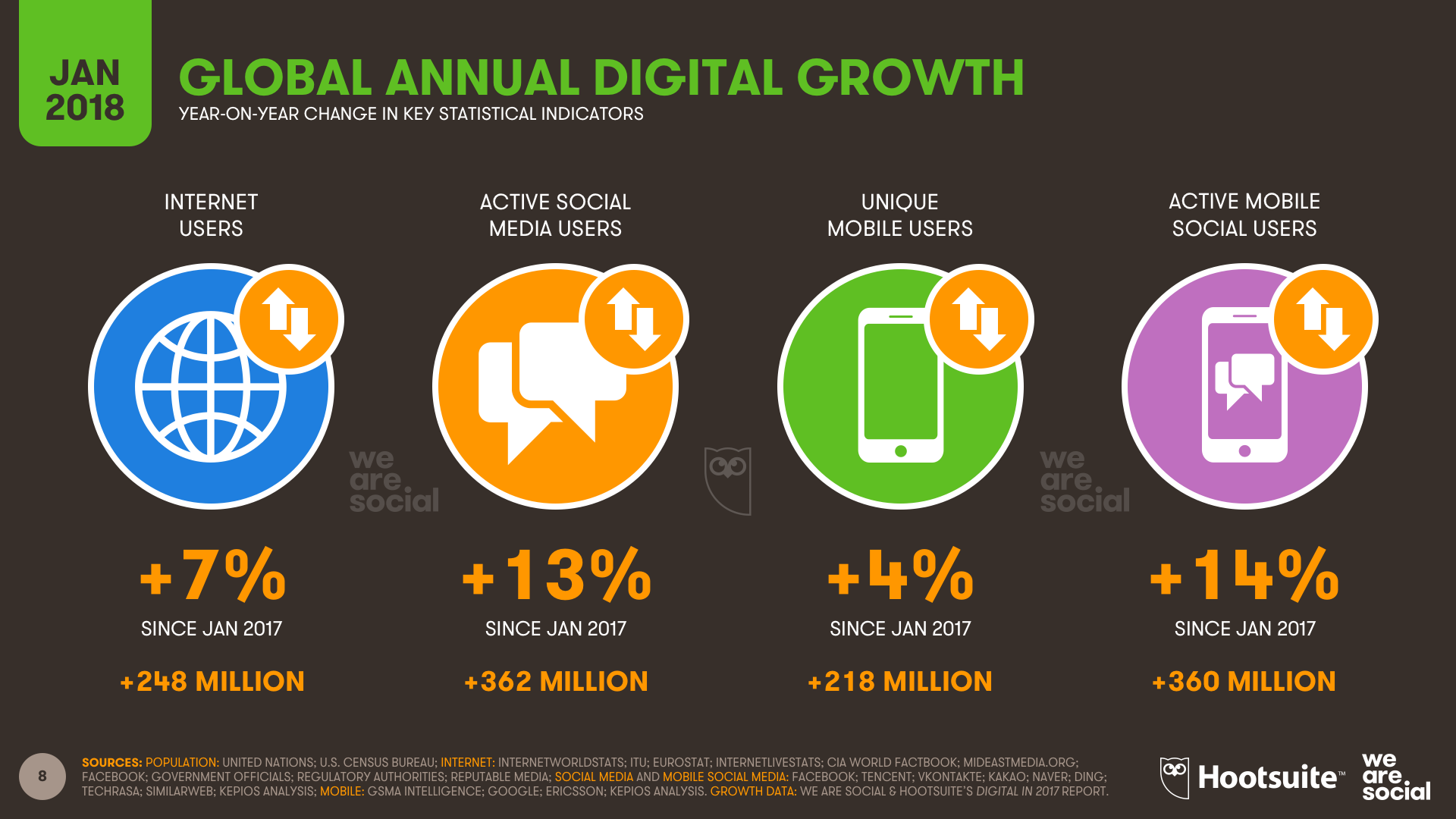
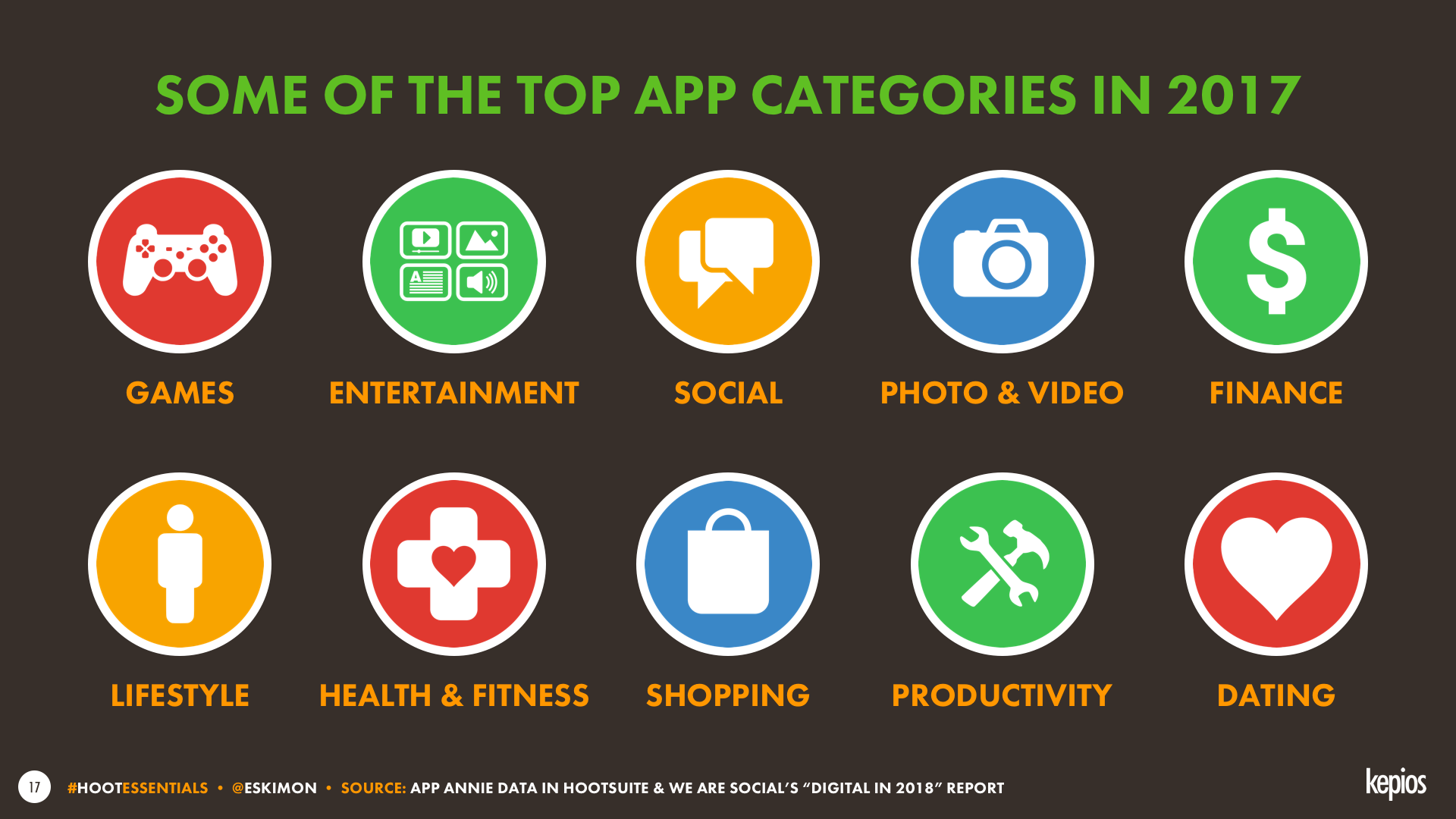
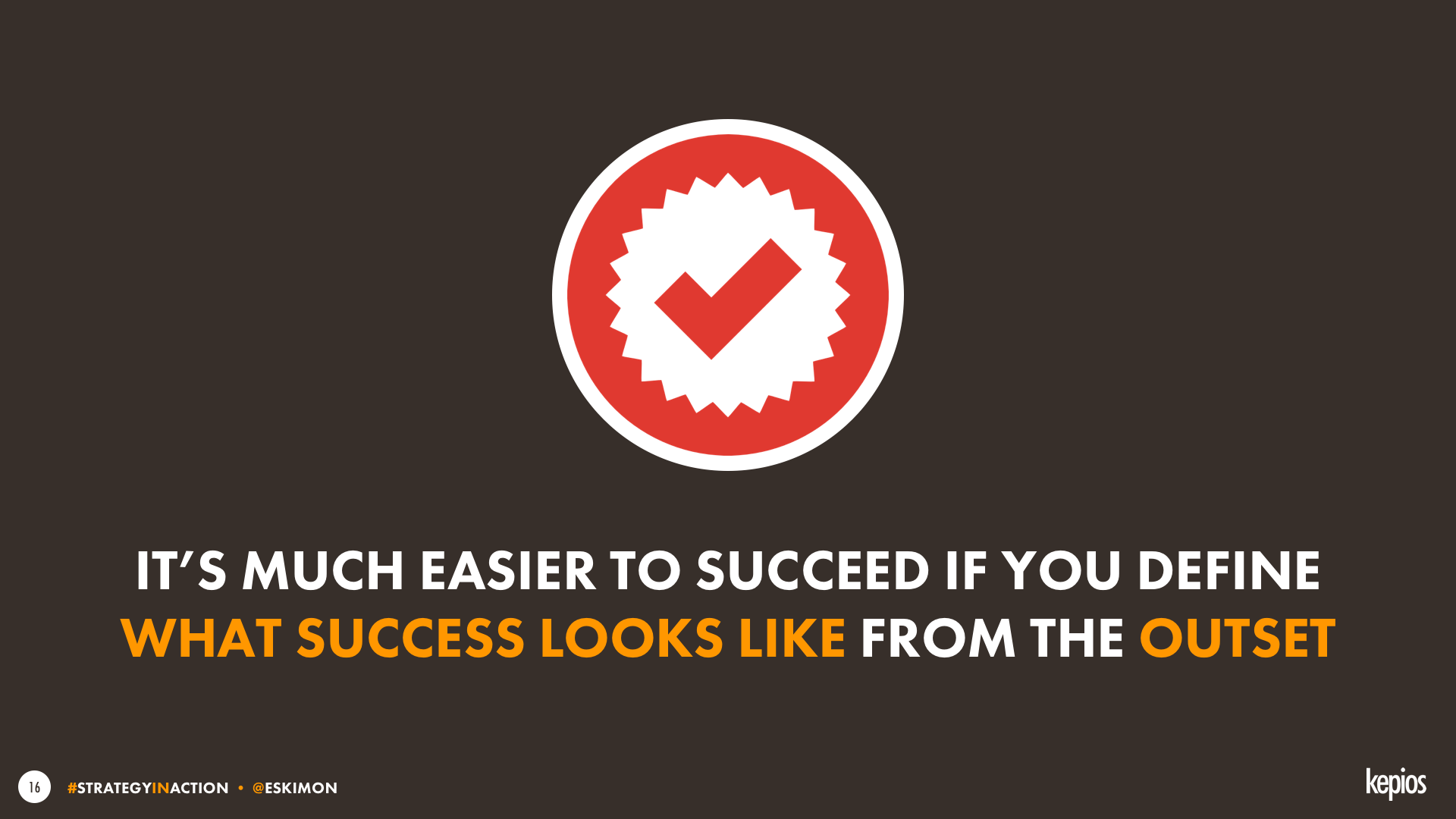
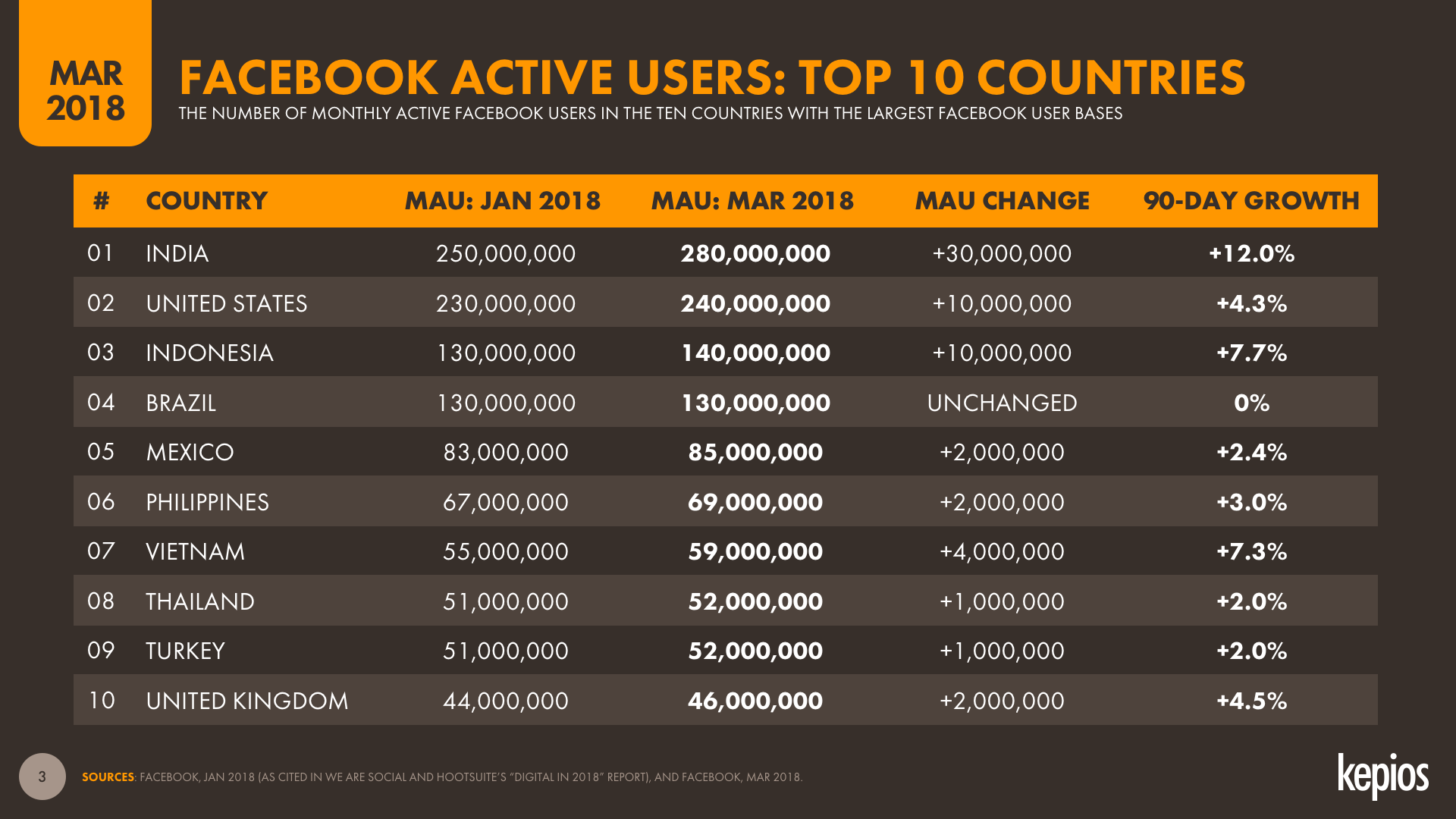
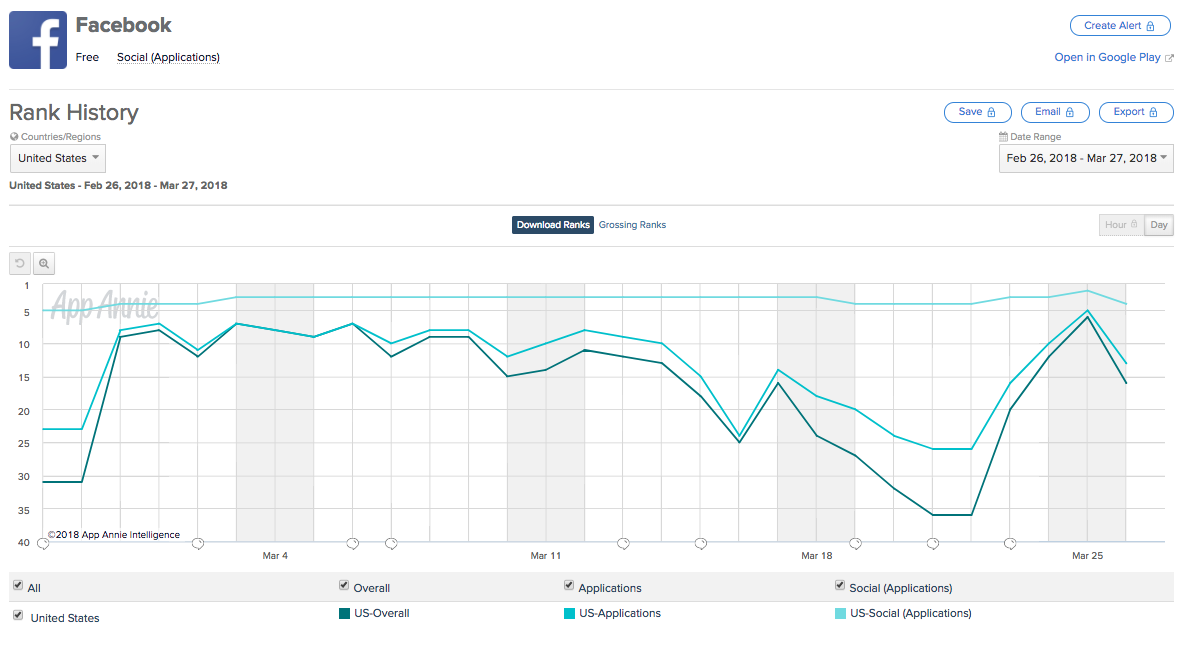
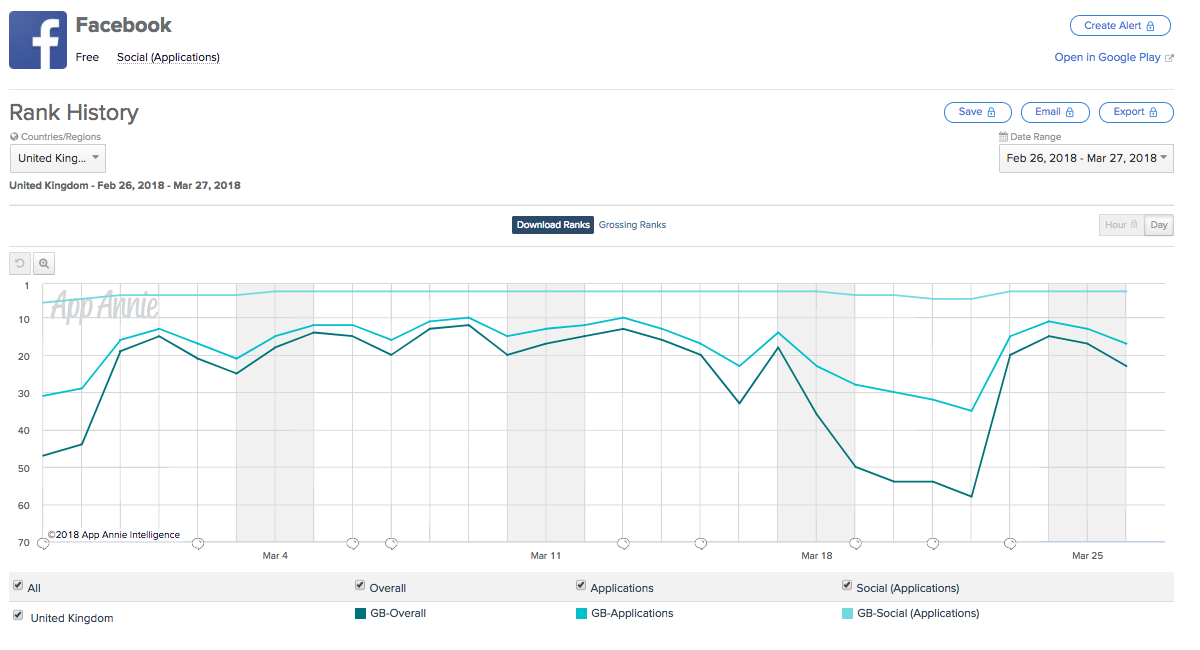
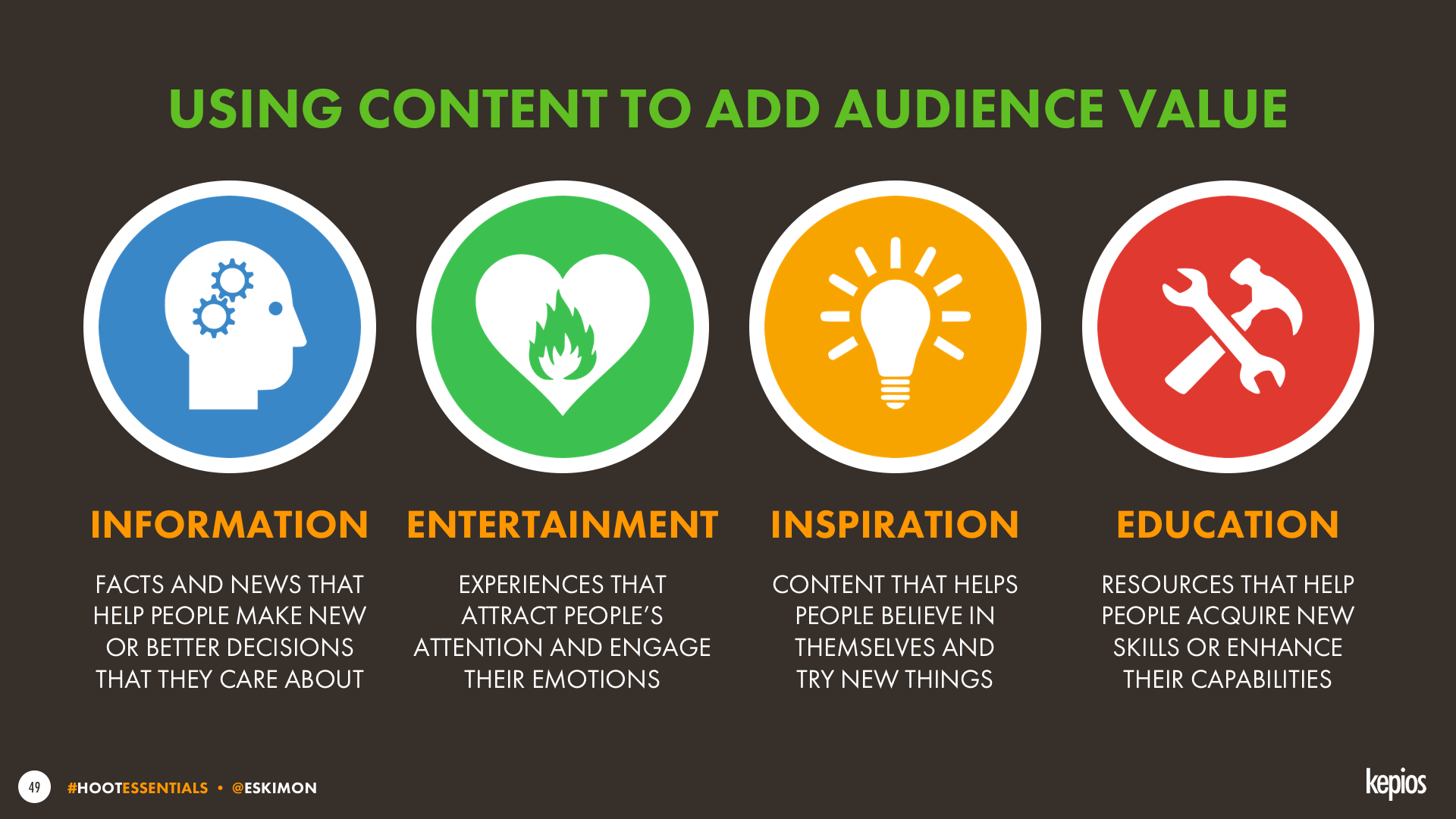
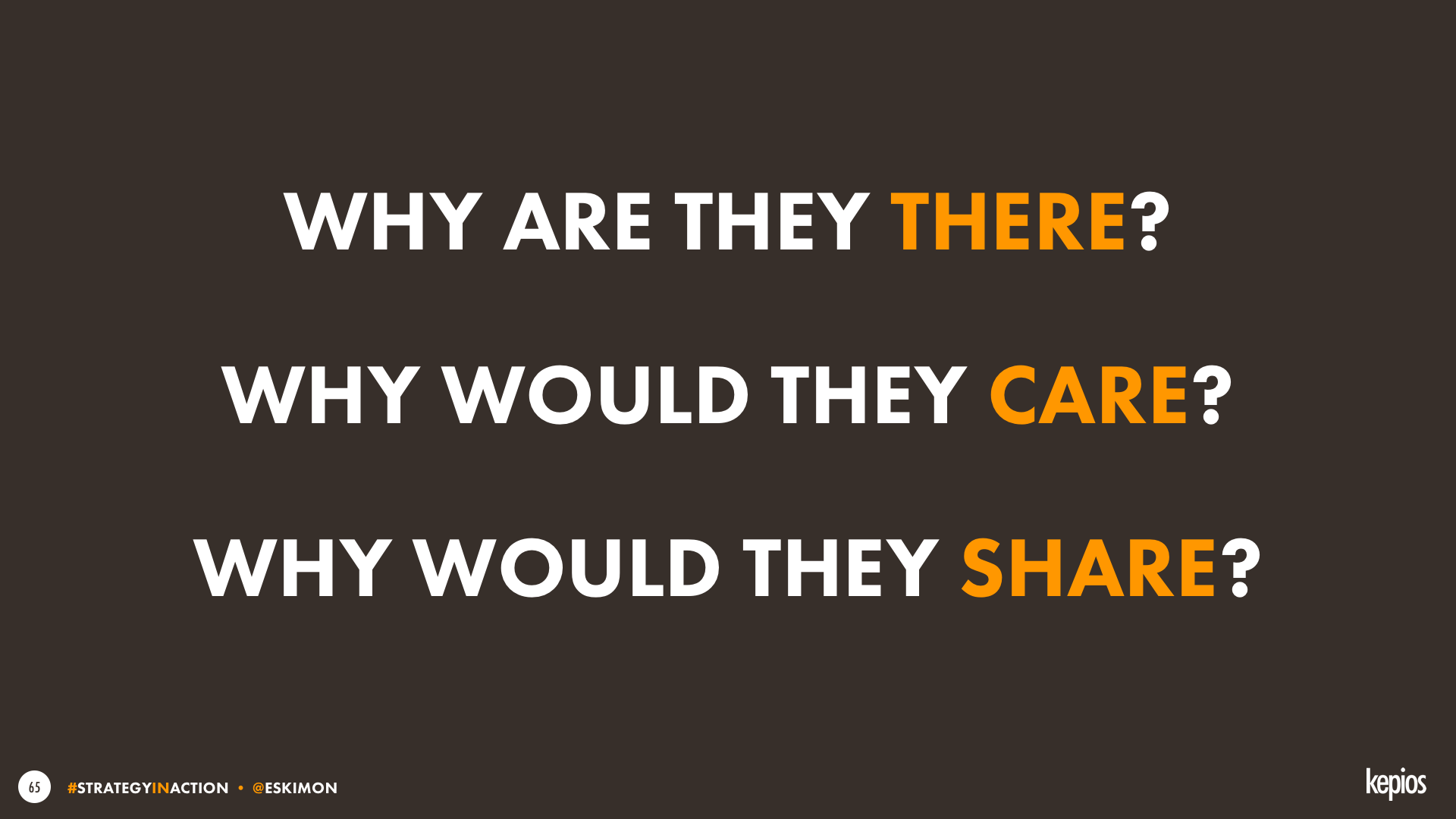
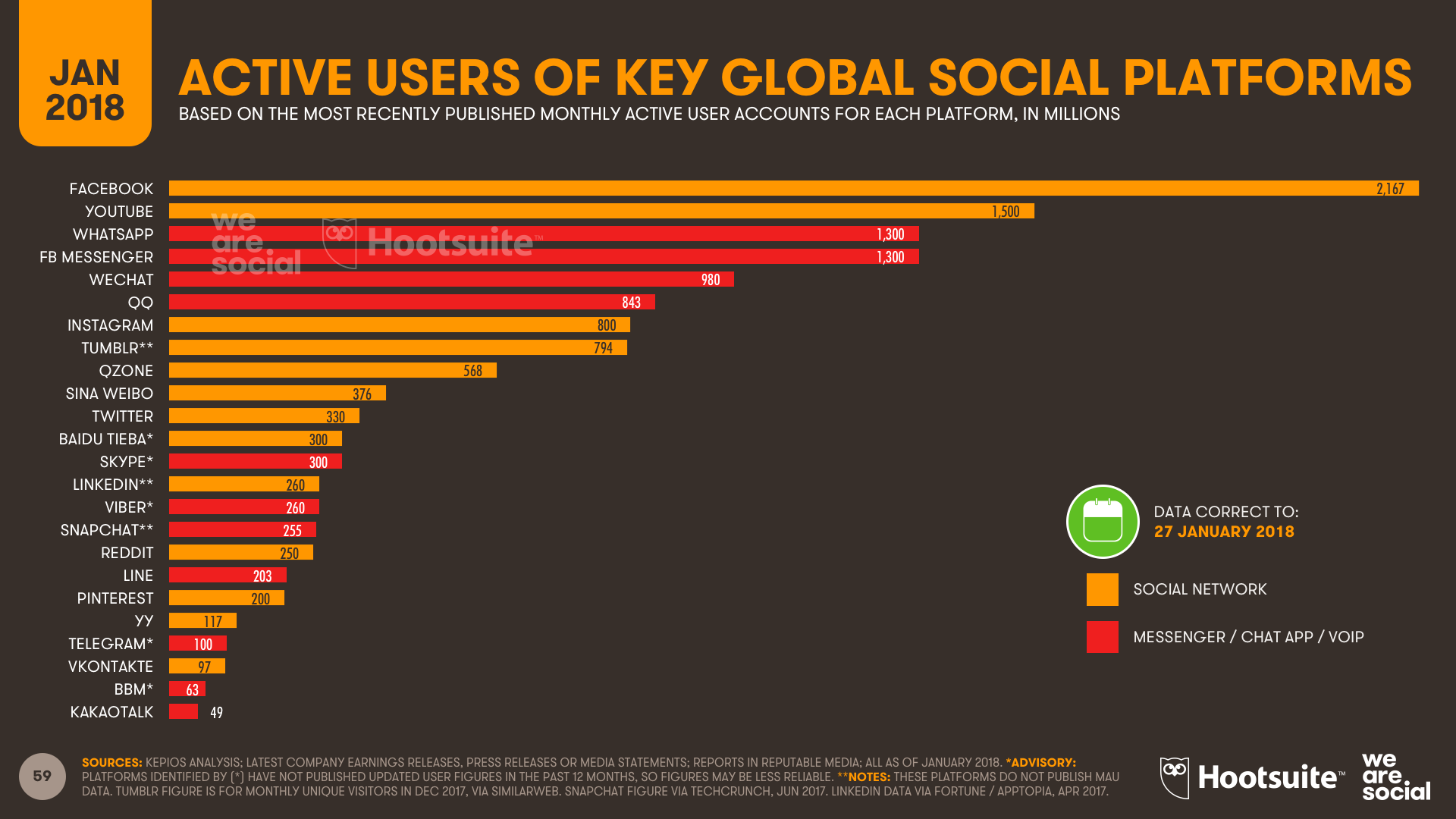

Leave your comments
Post comment as a guest